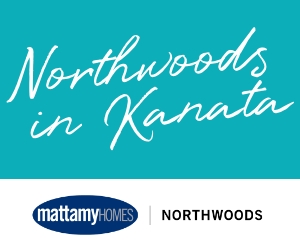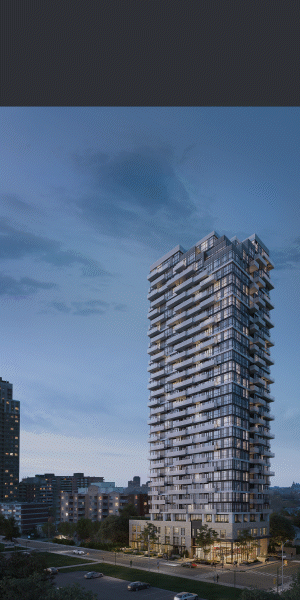Cardel Homes is taking a fresh approach to selling new-build homes by putting them up for bidding online.
Three of the builder’s homes in the Blackstone development in Kanata will be open to offers from March 9 to 12, with the homes going to the highest bidder. The whole process will be done online, much as you would buy a product from Amazon, says Tanya Buckley, Cardel’s vice-president of sales and marketing.
Reminiscent of what’s been happening in the resale market with homes for sale attracting multiple offers, Cardel sees this as a way to meet the overwhelming demand for homes in Ottawa as well as a way to test the “consumer appetite to purchase a new home entirely online,” says Buckley.
The three homes, which are all two-storey singles on 34-foot lots, have minimum bids assigned to them, starting at $764,949. Cardel has chosen the lots, floor plans and options, but the winning bidders will be able to customize exterior and interior colours.
Bidders must submit their mortgage pre-approval and a $1,000 deposit that is refunded to unsuccessful candidates. And they can submit only one bid.
‘There’s an appetite’
“The pandemic has forced a lot of people’s hand with respect to dealing electronically,” says Buckley. “We just feel there’s an appetite and a demographic out there that’s ready to buy a home online from beginning to end.”
She says the process is not quite the same as what we’ve been seeing during the pandemic, where much of the buying process has shifted to a virtual experience.
“Traditionally, you would drive around, drive through a community, notice model homes, you’d drop into a model home, you meet somebody, talk to them, find out what’s available… That has evolved — the advent of the pandemic has forced it to evolve into not dropping in anymore, but you’re emailing more, you’re setting up virtual appointments and so on.
“The next evolution, as we see it, is being able to purchase that consumer product online. There are people who do not want to interface. There’s a demographic… that are so used to, and (are) looking to, transact online. Everything from ordering your Uber to ordering your dinner… We’re in a world where there’s a comfort level of transacting online.”
Early interest
A day before the bidding opened, Buckley says Cardel had already received at least a dozen mortgage pre-approvals from potential bidders.
While William Strange, professor of economic analysis and policy at the University of Toronto, respects Cardel’s effort to experiment with new mechanisms for buyers, he’s not convinced it will work.
“This does not seem like a market where switching all the way to online is really a great thing… If you’re not going outside for the biggest financial decisions you ever make in your life, I mean you’re probably living on takeout food because you’re never leaving the house.”
But Paul Anglin, professor of real estate in the Lang School of Business and Economics at the University of Guelph, is not surprised by the move.
“I don’t think I’ve touched cash for awhile,” he says. “There are numerous examples of homes that have been bought and sold even on eBay.”
Bidding online
So, why throw in the element of bidding to the online buying process?
“People are so challenged right now. The currency right now is how to get to the front of the line,” Buckley says. “It became abundantly clear when we released four townhomes and had 73 qualified buyers for four townhomes. How do you begin to be fair to 73 qualified buyers? And there are inherent challenges to the first-come, first-served through email.”
MORE: How buying a new home has become harder
The pandemic has caused all kinds of change for builders and buyers, adds Cheryl Rice, Ottawa president of industry analyst PMA Brethour Realty Group. “Builders pivoted to an online sales process, sites operate with strict health protocols, micro releases were introduced to manage costs, schedules, and closing dates — all to facilitate the new-home buying process as much as possible. Online bidding is yet another tactic in response to the current market.
“For the consumer, purchasing a new home has become very challenging, somewhat frustrating and in many cases disappointing — online lotteries, potentially hundreds of buyers for only a handful of product releases, increasing prices. Changes in the sales process can be disruptive and discouraging for buyers, but they do have a choice. The market ultimately decides what works and what doesn’t.”
Qualifying buyers
Cardel also chose to introduce a bidding process to help ensure they were getting qualified buyers who would be more likely to follow through with the sale if they were successful in bidding.
“It really is taking the resale approach… You put an asking price out there and you take offers; it’s exactly the same model,” says Buckley.
Builders, says Jason Burggraaf, executive director of the Greater Ottawa Home Builders’ Association, “have to balance the overwhelming demand for new homes with current pandemic restrictions, so we’re seeing builders continue to find new and innovative ways in how they sell homes.”
Buckley concurs. “We’re not afraid to try things,” she says, referencing Cardel’s experiment in Carleton Place with a fully accessible model home called the Lancaster to test market interest. “We’re very much about exploring and trying things and trying to think in a forward way.”
The idea of buying a new-build home completely online and through a bidding process is just another example of that, she says.
“I realize that triggers a reaction in people — it’s just not how we buy houses. Well, why not?”
A natural extension
Adds Strange: “People think that’s weird, but it just isn’t. I mean, that’s a natural enough extension of current practices… Australia and New Zealand have done auctions forever and it’s roughly one-third of the market share where people show up on the stoop of the house and they bid.”
But will the idea of an unfixed price affect affordability, like we’re seeing in the resale market, where homes are attracting multiple bids and selling for many thousands above asking price?
Anglin thinks not.
“Buyers, especially when they’re submitting a bid, they will be forced to consider what bid can they afford,” he says. “So, while I agree that possibly prices might go up if you get a lot of bids, for individuals I think the affordability problem is still the same. Am I willing to pay the price or not?”









